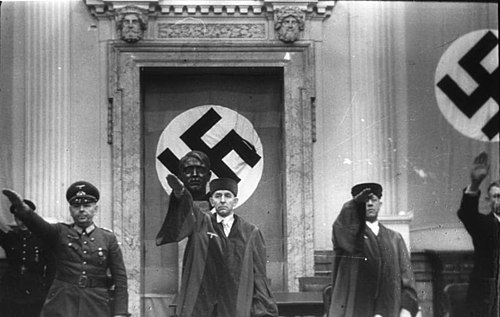Etymology
The term is known to have been used in the United States in 1841: an article in The Daily Picayune, New Orleans quotes the Concordia Intelligencer reporting several lynchings "upon various charges instituted by the Kangaroo court", asking "Don't comprehend: What is a Kangaroo court?" [6] The term is not attested to have been used in Australia, native land of the kangaroo, or elsewhere before then. [7]
The derivation of the term is not known, though there has been speculation. One suggestion is that, as these courts are often convened quickly to deal with an immediate issue, they are called kangaroo courts since they have "jumped up" out of nowhere, like a kangaroo. Another possibility is that the phrase could refer to the pouch of a kangaroo, meaning the court is in someone's pocket. [8] [9] [10] Some sources suggest that the term may have been popularized during the California Gold Rush of 1849 to which many thousands of Australians flocked. In consequence of the Australian miners' presence, it may have come about as a description of the hastily carried-out proceedings used to deal with the issue of claim-jumping miners. [7]
Etymologist Philologos suggests that the term arose "because a place named Kangaroo sounded comical to its hearers, just as place names like Kalamazoo , and Booger Hole , and Okeefenokee Swamp , strike us as comical." [11] In 19th-century United States, an alternative term was "mustang" court, after horses that roamed the plains, thus evoking the image of a court presided over by a wild beast. [12] The term is still in common use in the Anglosphere. [13]
This page is based on this
Wikipedia article Text is available under the
CC BY-SA 4.0 license; additional terms may apply.
Images, videos and audio are available under their respective licenses.
